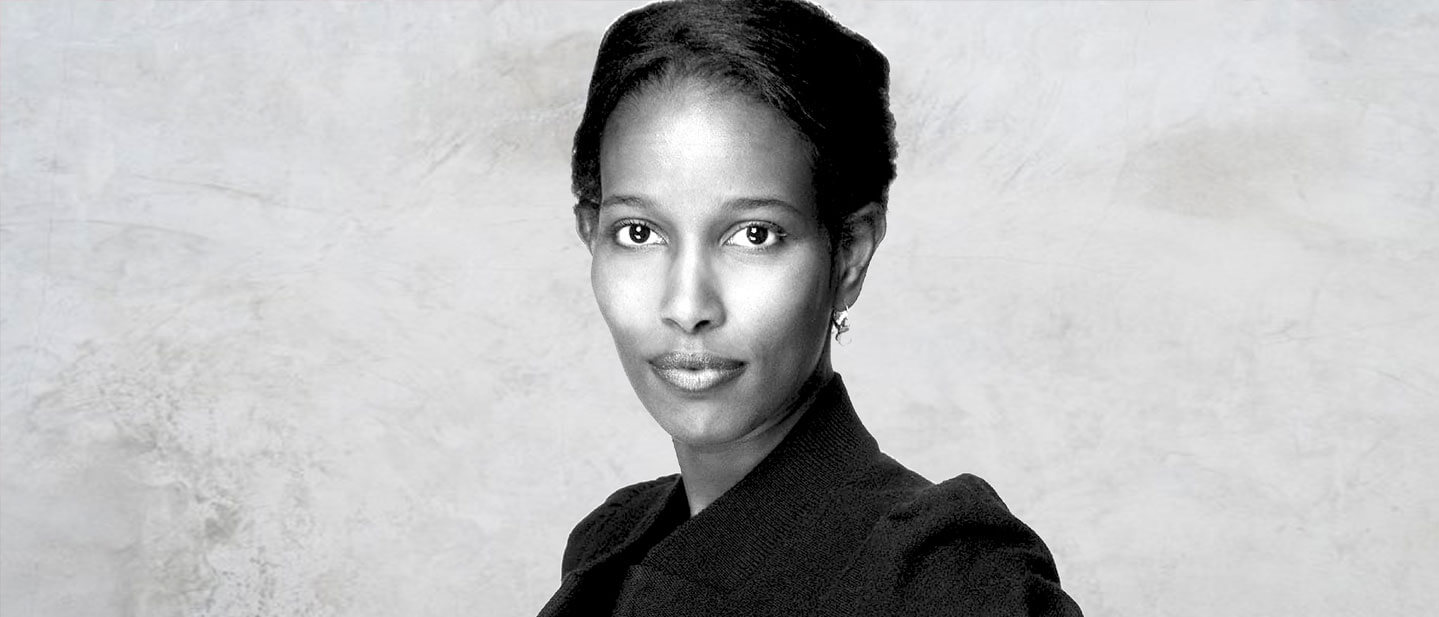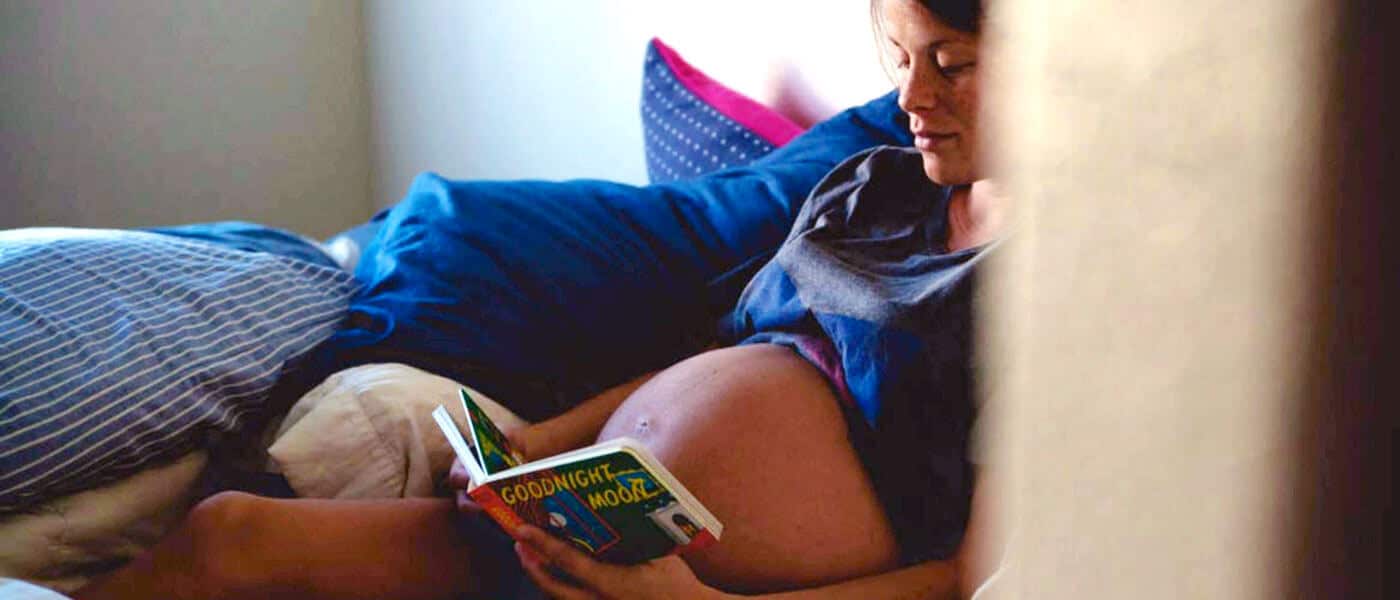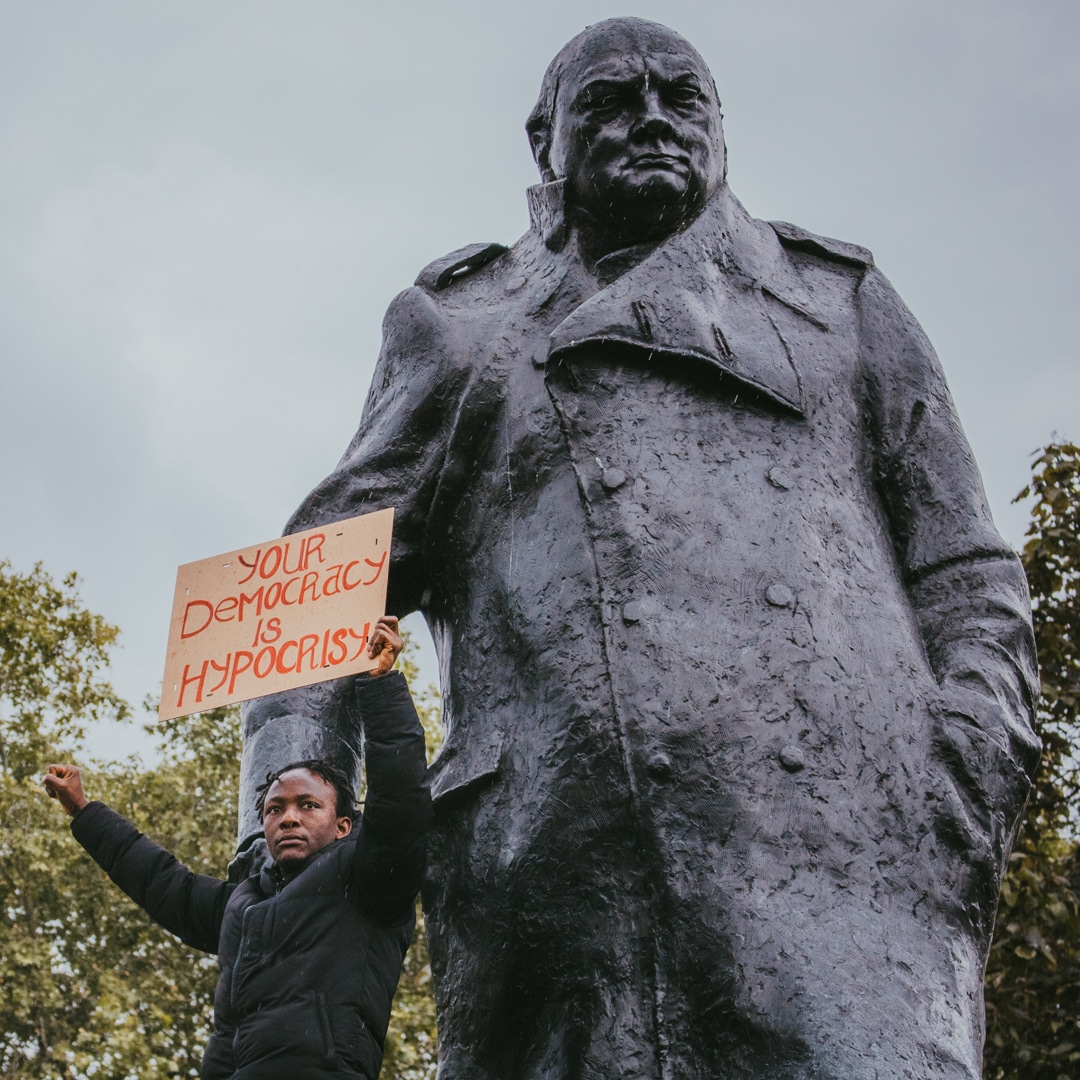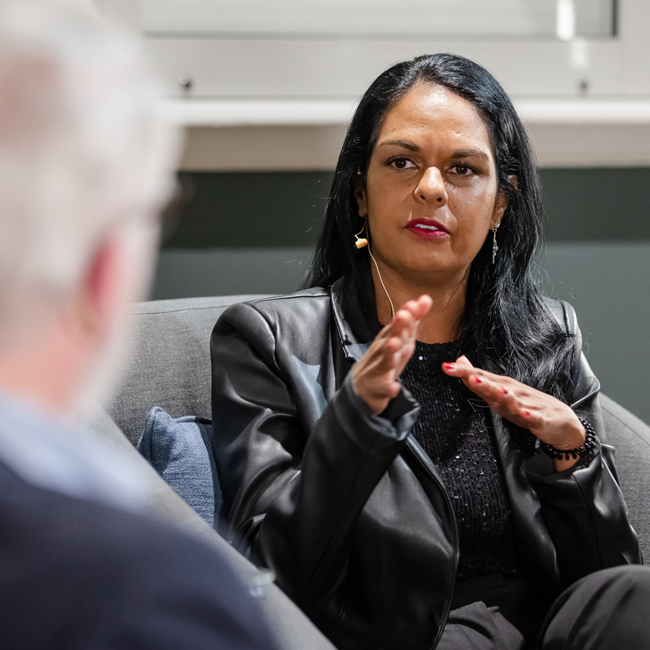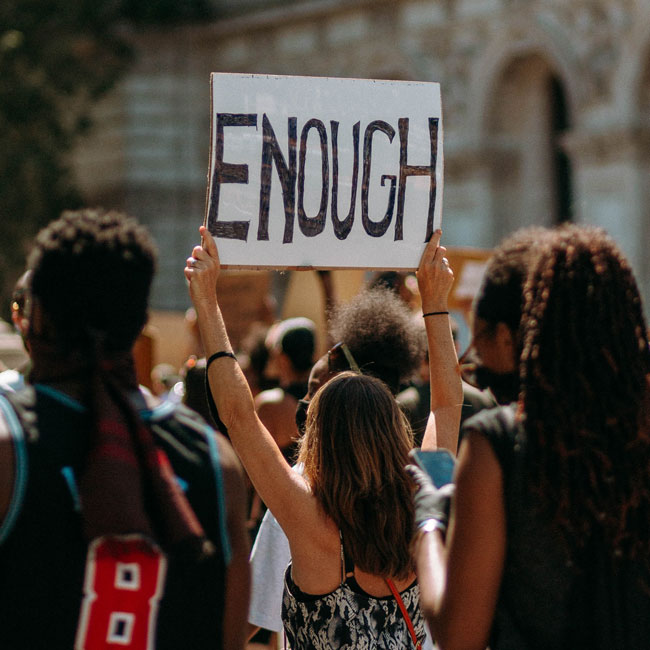Enough and as good left: Aged care, intergenerational justice and the social contract

Enough and as good left: Aged care, intergenerational justice and the social contract
Opinion + AnalysisPolitics + Human Rights
BY Dr. Gwilym David Blunt 21 SEP 2023
Any fair society should ensure that everyone has dignity in old age. This isn’t some utopian aspiration. It is an ethical minimum required for us not collectively to hang our heads in shame.
But it isn’t easy and it certainly isn’t cheap.
The question of how to fund aged care is a can that has repeatedly been kicked down the road, because it will invariably require unpopular decisions. Recently the Albanese government has shown an inclination to tackle the difficult issue. Anika Wells, the aged care minister, has formed a task force to implement recommendations of the Royal Commission into Aged Care Quality and Safety. This includes the prospect of introducing an aged care levy, an option dismissed by the previous government.
On its face, a levy seems sensible. Those people earning money ought to be more able to pay than those who are no longer in work. Even if, in the future, these working people do not need to use public aged care, it acts as an insurance policy for them and, on a more fundamental level, it satisfies our ethical obligations to protect the most vulnerable people in our society. Yet, the idea of a levy isn’t popular, which isn’t surprising: people generally don’t like higher taxes. However, scepticism and even anger over the prospect of a new levy doesn’t necessarily come from a place of selfishness.
A levy would affect young people most and they will likely resent the imposition. We are not talking about solipsistic Millennials and Zoomers wanting to indulge in an orgy of avocado toast and flat whites while their elders live in miserable poverty. The levy would require them to pay for the care of an older generation which by almost all metrics has had it easier. The benchmarks of the ‘Australian dream’ have become unobtainable for many young people, who have had to take on extraordinary debt for tertiary education, pay ever rising rents with homeownership out of reach as house prices skyrocket, delay starting families with childcare and associated costs rising, while inflation continues to erode salaries which have been stagnant for years.
All this raises questions about intergenerational justice and the social contract that binds us all together. The liberal tradition of the social contract, embodied in the work of a range of philosophers from 17th century John Locke to 20th century John Rawls, argues that we all can benefit through mutual cooperation, but we need rules to ensure the benefits and burdens are fairly distributed.
Social contract theory is often presented as a deal between the wealthy and the poor. It is a way of ensuring that the worst off in society are better off than they would otherwise be. To this we might add an intergenerational dimension. This makes intuitive sense; many would say that there is an obligation to ensure that each successive generation is better off than the one before or at least enjoys the same standard of living.
Locke’s theory of property helps to flesh out this intuition. On what grounds can we justify taking something out of the commons and saying “I own this”? For Locke two things need to happen:
- You have to mix your labour with something and
- You have to ensure that there is “enough and as good left”.
It is this second condition, which another 20th century philosopher, Robert Nozick called the ‘Lockean Proviso’ that is relevant here. It exists because if the starting point of property is that everything is owned in common, then private property becomes objectionable if it makes other people worse off than they were before. Locke gives the example of filling a bottle of water from a river. The water becomes yours because you’ve mixed your labour with it in the act of filling, but the river remains for anyone else who might wish to do the same. No one’s opportunities are diminished by your appropriation.
This Lockean Proviso connects to the social contract in a direct way. The terms of agreement would have to be such that each generation must leave ‘enough and as good’ for the next. If society does not provide the same set of opportunities, or better, for each generation then something has gone wrong with the distribution of benefits and burdens.
Young people may be able to generate income from work, but they are not the people with the most resources in society. Wealth is increasingly the domain of older people.
You might say “it always has been” – people who have spent their lives working are simply more likely to have more assets than those at the start of their careers.
Yet, if you look at important landmarks in the distribution of wealth, we can see the Lockean Proviso being eroded. In Australia, the proportion of wealth owned by Millennials and Zoomers is significantly smaller than that owned by Baby Boomer and Generation X at the same age. According to the Grattan Institute, the wealth of Australian households under the age of 35 has been stagnant since 2004, while the wealth of older households has grown by 50% in the same time period. This divergence has been exacerbated by generous tax concessions, so that during a period of major wealth accumulation the average income tax paid by over-65s barely changed and the number of older households paying income tax was halved. It is as if a dam has been built on Locke’s common river that provides no benefits for those who live downstream.
With this background, when it comes to aged care, young people may reasonably ask why they ought to carry the burden of paying. Surely, given the intergenerational distribution of opportunity and its fruits, it is fairer to make those who have benefitted most pay more? If the prevailing trend continues and the younger generation is increasingly forced to carry the burdens of social cooperation, then we can expect that more young people will begin to ask why they should continue to cooperate.
This need not be a battle cry to intergenerational warfare or collapse of the social contract. To satisfy the Lockean Proviso, asset-based wealth should be as open to any ‘levy’ as labour-based income.
Ethics in your inbox.
Get the latest inspiration, intelligence, events & more.
By signing up you agree to our privacy policy
You might be interested in…
Opinion + Analysis
Health + Wellbeing, Politics + Human Rights
Disease in a Time of Uncertainty
Opinion + Analysis
Politics + Human Rights
Why Anzac Day’s soft power is so important to social cohesion
Opinion + Analysis
Politics + Human Rights
If politicians can’t call out corruption, the virus has infected the entire body politic
Explainer
Politics + Human Rights, Relationships
Ethics Explainer: Critical Race Theory
BY Dr. Gwilym David Blunt
Dr. Gwilym David Blunt is a Fellow of the Ethics Centre, Lecturer in International Relations at the University of Sydney, and Senior Research Fellow of the Centre for International Policy Studies. He has held appointments at the University of Cambridge and City, University of London. His research focuses on theories of justice, global inequality, and ethics in a non-ideal world.
You’re the Voice: It’s our responsibility to vote wisely
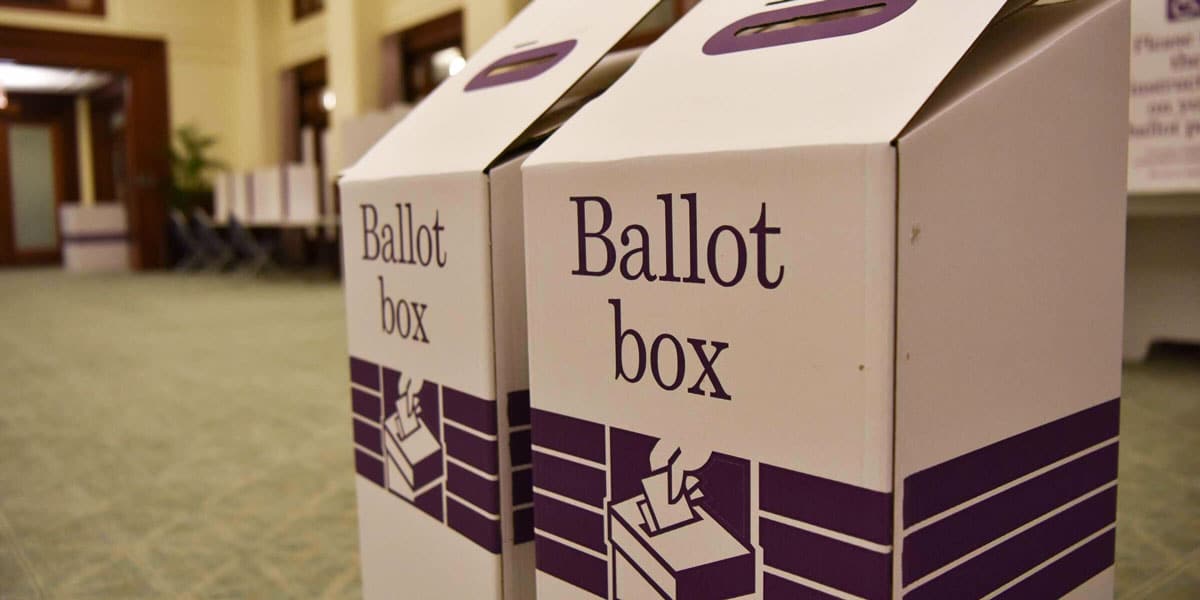
You’re the Voice: It’s our responsibility to vote wisely
Opinion + AnalysisPolitics + Human Rights
BY The Ethics Centre 13 SEP 2023
The Voice referendum is a high stakes decision that could affect many thousands of lives, and that means we have an ethical responsibility to choose how we vote carefully.
Not all decisions are created equal. Some are trivial in their consequences, like whether you choose the chocolate or strawberry ice cream for dessert. Some have higher stakes, like whether you decide to prioritise your career over travelling the world. Yet, these decisions still only affect how you live and are unlikely to impact anyone else.
You can make these decisions in a considered or a flippant way. Or you can choose to not make them at all (although doing so is still making a choice, of sorts). With low stakes personal decisions, you don’t even need to have a good reason for choosing what you do. The only person to whom you owe a justification is yourself – and you can always choose to free yourself of that burden.
But there are other kinds of decisions, ones that impact not just us but other people too. Decisions like these demand more from us and we cannot be so flippant with them. In these cases, we have a greater ethical responsibility to come to a more considered position, to weigh up the options more carefully, and be ready to justify our decision with good reasons.
This is the type of decision are we making when it comes to the Voice to Parliament referendum.
The stakes
In the case of the Aboriginal and Torres Strait Islander Voice, the stakes are whether Indigenous peoples are afforded constitutional protection for a consultatory body that will advise government on legislation affecting their communities – a body that cannot be legislated away with a change of government.
Leading Indigenous figures representing peoples from across Australia and the Torres Strait have asked the Australian people to make the constitutional change because they believe such a consultatory body will have a significant impact on the wellbeing of their peoples and will help correct over two centuries of political disempowerment and discrimination.
Be a good citizen
So, you have a decision to make, one that will likely have a significant impact on a vulnerable population. That places an ethical responsibility on each registered voter to take the decision seriously. This means not treating it flippantly and having a principled reason for voting, regardless of which way you vote. This is what it means to be a “good citizen”.
It’s easy to think of citizenship as simply affording us rights, such a right to have a say in how we’re governed or a right to be treated fairly under the law. However, citizenship also bestows upon us responsibilities, like voting in elections and serving on a jury if called.
But these are just the minimal responsibilities involved in citizenship. We need to do more to be a “good citizen”, including keeping ourselves engaged in issues of public significance and maintaining a basic level of political literacy. A good citizen also doesn’t just grumble about the state of society, they act to make it better. Finally, a good citizen sees themselves as members of an interconnected society, and is willing to make sacrifices or compromise for the common good. So, a good citizen will see the Voice referendum as an opportunity to exercise their responsibilities and engage with the issue actively to make an informed decision.
Be informed
The good news is that there is an abundance of information readily available for each of us to come to a principled decision. However, there is also a wealth of misinformation and disinformation floating around as well. Some of this is shared due to genuine confusion and some is spread by bad faith actors who have their own motivations for attempting to sway votes.
Explore what you really think
This is why it’s important to look at who is speaking and understand their motivations, which might not always be reflected in their arguments. Many people are motivated to vote one way or the other simply because that’s how their perceived political allies are voting, or they might be swayed by unconscious biases and use plausible sounding arguments as post-hoc rationalisations for how they feel deep down.
You can tell that someone is pushing post-hoc rationalisations when you successfully challenge their argument, such as by showing they have been duped by misinformation, but they still don’t change their mind. In this case, simply throwing more facts at them is unlikely to sway them.
A more successful approach is to be sceptical that the first reasons they give are the true motivations for their views. Instead, ask more questions about why they believe what they do and what they’re concerned will happen if the vote doesn’t go their way. Ask questions about how they can be confident their facts are true or what it would take to change their mind.
Rather than positioning yourself as an opponent, try taking the stance as a fellow traveller trying to get to the bottom of the matter. If you’re able to show respect, build trust and lower defensiveness, you’ll have a better chance of opening their mind to alternative perspectives – although it’s also crucial to remain open to alternate perspectives yourself.
There is no right answer
This is because there is no one “right answer” to the referendum question. Reasonable people can disagree on whether a Voice to Parliament is the best mechanism to promote the welfare and representation of Indigenous peoples, or whether a Voice ought to be enshrined in the constitution. When discussing the issue with others, it’s easy to assume that people who disagree with us must harbour some problematic views or that they are simply misguided. Resist that urge and ask questions that aim to tease out good reasons for or against the Voice.
The stakes involved in the Voice referendum mean that we should all take our responsibility to vote in a considered way seriously, and we should be mindful of how we make our decision. Even though there are many pressing issues facing the Australian public, from the cost of living through to climate change, that doesn’t mean we can’t also engage with the longstanding issue of Indigenous disadvantage, especially because there’s often not much we can do about many big issues but we’ve been explicitly invited to have a say on the Voice.
For everything you need to know about the Voice to Parliament visit here.
Ethics in your inbox.
Get the latest inspiration, intelligence, events & more.
By signing up you agree to our privacy policy
You might be interested in…
Explainer
Society + Culture, Politics + Human Rights
Thought experiment: The original position
Opinion + Analysis
Politics + Human Rights
Big Thinker: John Rawls
Opinion + Analysis
Business + Leadership, Politics + Human Rights, Society + Culture
Drawing a line on corruption: Operation eclipse submission
Opinion + Analysis
Politics + Human Rights
A note on Anti-Semitism
BY The Ethics Centre
The Ethics Centre is a not-for-profit organisation developing innovative programs, services and experiences, designed to bring ethics to the centre of professional and personal life.
Intimate relationships matter: The need for a fairer family migration system in Australia

Intimate relationships matter: The need for a fairer family migration system in Australia
Opinion + AnalysisPolitics + Human RightsRelationships
BY Dr Luara Ferracioli 17 AUG 2023
A liberal society like Australia should recognise that many intimate relationships matter, and in its approach to immigration the federal government should try as much as possible not to prioritise some relationships over others — unless it has a very good rationale for doing so.
A recent report by the Scanlon Foundation has shed some important light on how the current family migration scheme in Australia is failing foreign-born citizens, permanent residents, and their adult parents who want to join them in Australia.
According to the report, there are almost 140,000 Australian residents waiting between 12 and 40 years to be permanently reunited with their parents. The best route is to fork over $48,365 per parent. This contributory visa currently has an expected processing period of 12 years. The cheaper, non-contributory version of this visa costs $4,990 per parent and the application may take 29 years to process.
Since the Parkinson review into Australia’s migration system was established in September 2022, much of the public commentary has focused on the unfairness of leaving adult citizens and their parents in limbo. The expert panel itself puts it bluntly: “Providing an opportunity for people to apply for a visa that will probably never come seems both cruel and unnecessary.”
There is no doubt that the government urgently needs to reform its approach to migration, and visas need to be processed within a reasonable time-frame so that prospective immigrants can move on with their lives. There are, however, two other unfair elements baked into the Australian family migration system that also need addressing.
First, there is the cost of the contributory visas. A visa of almost $50,000 only allows affluent foreign-born citizens to bring their parents to Australia. But if this visa is meant to promote the interest we all have in enjoying territorially located intimate relationships in an on-going fashion, then it is grossly unjust that the wealthy are given a much better shot at having that interest protected.
The second unfairness is perhaps even more under-appreciated. Why prioritise parents as opposed to other adults that citizens and permanent residents might care deeply about? Whereas some are no doubt very close to their parents, others are very close to an uncle, an aunt, or a third-degree cousin. Whereas some individuals long to spend more quality time with a parent, others would really like to live closer to their best friend.
This point becomes clearer when we recognise that sometimes friends are much more emotionally dependent on one another than immediate family members. A citizen who would genuinely lead a much better life if her best friend was allowed to move to Australia then lacks access to a visa that allows a fellow citizen to bring an adult parent into the country, irrespective of how emotionally close they are.
My point is not that the government should assess the level of intimacy between an adult citizen or permanent resident and a parent.
As a liberal society, we need to respect people’s right to privacy, and be extremely careful not to give bureaucrats power to pass judgements about people’s lives in ways that are prone to be informed by sexist, racist, and classist biases.
My point is only that, in a liberal society like Australia, many intimate relationships matter, and the government should try as much as possible not to prioritise some relationships over others unless it has a very good rationale for doing so. Ultimately it was this important requirement that saw many commentators object to Victorian premier Dan Andrews’s exclusion of friends from the remit of the COVID bubble in 2020, and why at some point the state of Victoria pivoted to allowing friends to visit each other during lockdown.
A fair alternative to an unfair immigration system?
But short of completely opening our international borders, is there a solution available to the Australian government? As I see it, the federal government can have a broader intimate relationship visa that is available to all citizens and permanent residents at a reasonable fee. Because the number of interested parties will be very high, the government can then combine that visa with a lottery scheme that gives every adult citizen and permanent resident an equal chance to bring someone they care deeply about to Australia.
In response to suggestions that a lottery scheme should be taken seriously, the author of the Scanlon report writes:
“Just like the faint hope that visa processing times will be faster than anticipated, the slim chance of winning a spot in the lottery will leave families banking on dreams, rather than adjusting to the realities of their situation and fully settling in Australia.”
As someone who has parents overseas, I don’t see why this would leave me “banking on dreams”. We all understand how lotteries work, and we all understand that when everyone has an equal interest in accessing a good or opportunity — in this case, reunification with a loved one — but that good or opportunity cannot be provided to everyone, a lottery may be the only fair way to go about it.
Australians have no appetite for open borders, so we need to come up with a fair way to run our migration schemes. In a world full of refugees whose lives are at risk, it is hard to show that an injustice has taken place when adult citizens are prevented from bringing a parent to Australia. At the same time, if some parents will be allowed to join their adult children in Australia on a permanent basis, we better have a fair system that gives all citizens and permanent residents an equal chance to reunite with someone they care deeply about.
This article was originally published by ABC Religion & Ethics.
Ethics in your inbox.
Get the latest inspiration, intelligence, events & more.
By signing up you agree to our privacy policy
You might be interested in…
Big thinker
Politics + Human Rights
Big Thinker: Ayaan Hirsi Ali
Opinion + Analysis
Relationships, Climate + Environment
Blindness and seeing
Opinion + Analysis
Relationships, Society + Culture
What Harry Potter teaches you about ethics
Opinion + Analysis
Climate + Environment, Relationships, Science + Technology
From NEG to Finkel and the Paris Accord – what’s what in the energy debate
BY Dr Luara Ferracioli
Luara Ferracioli is Associate Professor in Political Philosophy at the University of Sydney and ARC DECRA fellow. She was awarded her PhD from the Australian National University in 2013, and has held appointments at the University of Oxford, Princeton University, and the University of Amsterdam. Her first book Liberal Self-Determination in a World of Migration was published in 2022 with Oxford University Press, and her new book Parenting and the Goods of Childhood is forthcoming (with Oxford University Press).
Big Thinker: Judith Jarvis Thomson

Big Thinker: Judith Jarvis Thomson
Big thinkerPolitics + Human Rights
BY The Ethics Centre 11 JUL 2023
Judith Jarvis Thomson (1929-2020) is one of the most influential ethicists and metaphysicians of the 20th century. She’s known for changing the conversation around abortion, as well as modernising what we now know as the trolley problem.
Thomson was born in New York City on October 4th, 1929. Her mother was Catholic of Czech heritage and her father was Jewish, who both met at a socialist summer camp. While her parents were religious, they didn’t impose their beliefs on her.
At the age of 14, Thomson converted to Judaism, after her mother died and her father remarried a Jewish woman two years later. As an adult, she wasn’t particularly religious but she did describe herself publicly as “feel[ing] concern for Israel and for the future of the Jewish people.”
In 1950, Thomson graduated from Barnard College with a Bachelor of Arts (BA), majoring in philosophy, and then received a second BA in philosophy from Cambridge University in England in 1952. She then went on to receive her Masters in philosophy from Cambridge in 1956 and her PhD in philosophy from Columbia University in New York in 1959.
Violinists, trolleys and philosophical work
Even though she had received her PhD from Columbia, the philosophy department wouldn’t keep her as a professor as they didn’t hire women. In 1962, she began working as an assistant professor at Barnard college, though she later moved to Boston University and then MIT with her husband, James Thomson, for the majority of her career.
Thomson is most famous for her thought experiments, especially the violinist case and the trolley problem. In 1971, Thomson published her book A Defense of Abortion, which presented a new kind of argument for why abortions are permissible during a time of heightened debate in the US as a result of the second wave feminist movement. Arguments that defended a woman’s right to an abortion circulated feminist publications and eventually led to the Supreme Court ruling in favour of Roe v. Wade (1973).
“Opponents of abortion commonly spend most of their time establishing that the foetus is a person, and hardly any time explaining the step from there to the impermissibility of abortion.” – Judith Jarvis Thomson
The famous violinist case asks us to imagine if it is permissible to “unplug” ourselves from a famous violinist, even if it is only for nine months and being plugged in is the only thing keeping them alive. As Thomas Nagel said, “she expresses very clearly the essentially negative character of the right to life, which is that it’s a right not to be killed unjustly, and not a right to be provided with everything necessary for life.” To this day, the violinist case is taught in classrooms and recognised as one of the most influential thought experiments arguing for the permissibility of abortion.
Thomson is famous for another famous thought experiment, the trolley problem. In her 1976 paper “Killing, Letting Die and the Trolley Problem,” Judith Jarvis Thomson articulates a famous thought experiment, first imagined by Philippa Foot, that encourages us to think about the moral relevance of killing people, as opposed to letting people die by doing nothing to save them.
In the trolley problem thought experiment, a runaway trolley will kill five innocent people unless someone pulls a lever. If the lever is pulled, the trolley will divert onto a different track and only one person will die. As an extension to Foot’s argument, Thomson asks us to think if there is something different about pushing a large man off a bridge, thereby killing him, to prevent five people from dying from the runaway trolley. Why does it feel different to pull a lever rather than push a person? Both have the same potential outcomes and distinguish between killing a person and letting a person die.
In the end, what Thomson finds is that oftentimes, the action as well as the outcome are morally relevant in our decision making process.
Legacy
Thomson’s extensive philosophical career hasn’t gone unnoticed. In 2012, she was awarded the American Philosophical Association’s prestigious Quinn Prize for her “service to philosophy and philosophers.” In 2015, she was awarded an honorary doctorate by the University of Cambridge, and then in 2016 she was awarded another honorary doctorate from Harvard.
Thomson continues to inspire women in philosophy. As one of her colleagues, Sally Haslanger, says: “she entered the field when only a tiny number of women even considered pursuing a career in philosophy and proved beyond doubt that a woman could meet the highest standards of philosophical excellence … She is the atomic ice-breaker for women in philosophy.”
Ethics in your inbox.
Get the latest inspiration, intelligence, events & more.
By signing up you agree to our privacy policy
You might be interested in…
Opinion + Analysis
Society + Culture, Politics + Human Rights
Pleasure without justice: Why we need to reimagine the good life
Explainer
Politics + Human Rights
Ethics Explainer: Anarchy
Opinion + Analysis
Politics + Human Rights
Big Brother is coming to a school near you
Opinion + Analysis
Health + Wellbeing, Politics + Human Rights
Don’t throw the birth plan out with the birth water!
BY The Ethics Centre
The Ethics Centre is a not-for-profit organisation developing innovative programs, services and experiences, designed to bring ethics to the centre of professional and personal life.
If politicians can’t call out corruption, the virus has infected the entire body politic

If politicians can’t call out corruption, the virus has infected the entire body politic
Opinion + AnalysisPolitics + Human Rights
BY Simon Longstaff 3 JUL 2023
Nothing can or should diminish the good done by Gladys Berejiklian. And nothing can or should diminish the bad. One does not cancel the other. Both are true. Both should be acknowledged for what they are.
Yet, in the wake of Independent Commission Against Corruption’s finding that the former premier engaged in serious corrupt conduct, her political opponent, Premier Chris Minns, has refused to condemn the conduct that gave rise to this finding. Other politicians have gone further, putting personal and political allegiance ahead of sound principle to promote a narrative of denial and deflection.
Political corruption is like a highly contagious virus that infects the cells of the brain. It tends to target people who believe their superior virtue makes them immune to its effects. It protects itself from detection by convincing its hosts that they are in perfect ethical health, that the good they do outweighs the harm corruption causes, that noble intentions excuse dishonesty and that corruption only “counts” when it amounts to criminal conduct.
By any measure, Berejiklian was a good premier. Her achievements deserve to be celebrated. I am also certain that she is, at heart, a decent person who sincerely believes she always acted in the best interests of the people of NSW. By such means, corruption remains hidden – perhaps even from the infected person and those who surround them.
In painstaking legal and factual detail, those parts of the ICAC report dealing with Berejiklian reveal a person who sabotaged her own brilliant career, not least by refusing to avail herself of the protective measures built into the NSW Ministerial Code of Conduct. The code deals explicitly with conflicts of interest. In the case of a premier, it requires that a conflict be disclosed to other cabinet ministers so they can determine how best to manage the situation.
The code is designed to protect the public interest. However, it also offers protection to a conflicted minister. Yet, in violation of her duty and contrary to the public interest, Berejiklian chose not to declare her obvious conflict.
At the height of the COVID pandemic, did we excuse a person who, knowing themselves to be infected by the virus, continued to spread the disease because they were “a good person” doing ‘a good job’? Did we turn a blind eye to their disregard for public health standards just because they thought they knew better than anyone else? Did it matter that wilfully exposing others to risk was not a criminal offence? Of course not. They were denounced – not least by the leading politicians of the day.
But in the case of Berejiklian, what we hear in reply is the voice of corruption itself – the desire to excuse, to diminish, to deflect. Those who speak in its name may not even realise they do so. That is how insidious its influence tends to be. Its aim is to normalise deviance, to condition all whom it touches to think the indefensible is a mere trifle.
This is especially dangerous in a democracy. When our political leaders downplay conflicts of interest in the allocation of public resources, they reinforce the public perception that politicians cannot be trusted to use public power and resources solely in the public interest.
Our whole society, our economy, our future rest on the quality of our ethical infrastructure. It is this that builds and sustains trust. It is trust that allows society to be bold enough to take risks in the hope of a better future. We invest billions building physical and technical infrastructure. We invest relatively little in our ethical infrastructure. And so trust is allowed to decay. Nothing good can come of this.
When our ethical foundations are treated as an optional extra to be neglected and left to rot, then we are all the poorer for it.
What Gladys Berejiklian did is now in the past. What worries me is the uneven nature of the present response. Good people can make mistakes. Even the best of us can become the authors of bad deeds. But understanding the reality of human frailty justifies neither equivocation nor denial when the virus of corruption has infected the body politic.
This article was originally published in The Sydney Morning Herald.
Ethics in your inbox.
Get the latest inspiration, intelligence, events & more.
By signing up you agree to our privacy policy
You might be interested in…
Explainer
Politics + Human Rights
Ethics Explainer: Just War Theory
Opinion + Analysis
Relationships, Politics + Human Rights
How to have a difficult conversation about war
Explainer
Society + Culture, Politics + Human Rights
Thought experiment: The original position
Opinion + Analysis
Business + Leadership, Politics + Human Rights
Can philosophy help us when it comes to defining tax fairness?
BY Simon Longstaff
After studying law in Sydney and teaching in Tasmania, Simon pursued postgraduate studies in philosophy as a Member of Magdalene College, Cambridge. In 1991, Simon commenced his work as the first Executive Director of The Ethics Centre. In 2013, he was made an officer of the Order of Australia (AO) for “distinguished service to the community through the promotion of ethical standards in governance and business, to improving corporate responsibility, and to philosophy.”
It’s time to increase racial literacy within our organisations

It’s time to increase racial literacy within our organisations
Opinion + AnalysisBusiness + LeadershipPolitics + Human RightsRelationships
BY The Ethics Alliance 29 MAY 2023
In order establish more culturally diverse and inclusive workplaces, we need to increase our racial literacy.
We only need to look at the pay gap and underrepresentation in leadership to identify systemic racial issues within our organisations. In 2022, the Everyday Respect Report released from EB & Co identified racism as one of the factors impacting psychological safety and workplace culture. While new research from diversity and consultancy firm, MindTribes uncovered a non-Anglo pay gap within Australian organisations.
Workplace norms, systems and biases have sanitised racism to the point where not only it can affect individual’s mental wellbeing, pay and career progression, but also an organisation’s productivity, culture and consumer response. As ethical leaders we have a responsibility to unveil how racial discrimination plays out in our businesses and what strategies we can use to combat them.
An Ethics Exchange gathering in May 2023, welcomed Diversity Council of Australia (DCA) CEO Lisa Annese and Ethics Alliance members as they shared personal experiences and strategies used when developing Diversity and Inclusion (D&I) programs, and how they recognise and tackle racism within their workplaces.
The DCA has evolved over the last 40 years to become a leading entity which promotes and advances more diverse and inclusive workplaces for the benefit of individuals, organisations and the broader community. Annese says to build strategies that tackle racism in our organisations, we need to start with language.
Let’s start with language
It’s important to understand the difference in language when it comes race and culture, particularly within the Australian D&I context. Culture is defined as a combination of characteristics including ethnicity, ancestry, language, and place of origin, whereas race is generally seen as a social construct related to physical characteristics and group identity.
In response to the White Australian policy there was an effort by Gough Whitlam in the late 1960s to remove “race” from common language in order to reduce racism. This shift resulted in a focus on culture over race, and the country adopted terms such as “non-English speaking background”, embracing the concept of multiculturalism. For instance, since the United Nations created their Elimination of Racial Discrimination Day, Australia is the only country globally that doesn’t use the word race. We instead call it Harmony Day with a focus on harmony for the week. That is what is taught in our public schools and celebrated in our workplaces.
Annese suggests this avoidance of the term “race” in favour of “culture” was also an effort to maintain an existing Eurocentric power structure. For example, the term “culturally and linguistically diverse” was introduced, which broadly referred to anyone who couldn’t trace their origins back to Britain – essentially anyone non-Anglo Celtic. This excludes a large group of people with different experiences and perpetuates a sense of “otherness.”
Once we identify the other it can become easy to treat people differently and not afford them the same respect we would expect ourselves.
While understanding people’s culture is useful, it’s crucial to talk about race and to acknowledge the lived experiences of Australians who experience racism.
DCA research suggests that in Australia today, those who experience racism and racial marginalisation are people from non-European backgrounds, and the main cause of racism has less to do with language and culture and focuses more on race – features such as phenotype, visible difference, religious dress, skin tone, and hair texture.
If we want to build more inclusive and diverse businesses, we need to talk about race. And to do so, we must know what it is.
By developing an understanding of how history has sanitised our language and normalised racism in our workplace, we are able to discuss the concept of race in a way that avoids unnecessary distress. It’s important not to make assumptions that the harm felt by malintent, or overt racism is any different from the racism embedded in well-meaning or curious comments about an individual’s appearance or background.
Principles and a framework that emerged from The Ethics Exchange and DCA research to bring racial literacy to the workplace included:
- Build Racial Literacy: Before tackling racism, businesses must first educate their employees about the concept of race. They should understand what race is, how racialisation occurs, and the impact it has on people. This is important because most people have low levels of racial literacy.
- Build Confidence: The second step involves helping employees become confident in their understanding of race and racial issues. This stage ensures employees feel comfortable discussing these topics and are prepared for the next step.
- Talk About Anti-Racism: The final stage is to discuss what it means to be actively anti-racist. It is important that employees understand how they can contribute to an anti-racist environment. This stage of the process can only be effectively implemented once employees have a clear understanding of race and are confident discussing it.
One of the most impactful ways of understanding racism is to hear it from those who have been subject to it, however this carries a huge burden or cultural load. How can their voices be included to develop strategies to combat racism?
- Centre Voices: The experiences and perspectives of those affected by racism must be central to any initiatives addressing it. For instance, if a business is developing a Reconciliation Action Plan (RAP) in Australia, it should involve Indigenous employees in the process.
- Respect Cultural Labour: Organisations should acknowledge the cultural emotional and intellectual labour of employees with different social identities involved in initiatives addressing racism.
- Remunerate Appropriately: If individuals are asked to participate in initiatives to combat racism, particularly if they’re asked to share personal experiences or provide additional insights, they should be appropriately compensated.
- Respect Personal Choice: Not everyone will want to be involved in such initiatives, and that choice should be respected.
- Avoid Overgeneralisation and Presumption: One individual cannot represent an entire group. Avoid making assumptions about an entire race or culture based on the perspectives or experiences of one individual.
- Use Available Resources: In an age where information is readily available, it’s possible to educate oneself about different cultures and races without overly relying on individuals from those backgrounds to teach others.
We’d like to thank Lisa Annese and the Ethics Alliance members who contributed to this important conversation.
Find out more about the DCA’s research here.
Ethics in your inbox.
Get the latest inspiration, intelligence, events & more.
By signing up you agree to our privacy policy
You might be interested in…
Opinion + Analysis
Business + Leadership
Following a year of scandals, what’s the future for boards?
WATCH
Relationships
Moral intuition and ethical judgement
Opinion + Analysis
Politics + Human Rights, Relationships, Society + Culture
The ethics of tearing down monuments
Opinion + Analysis
Business + Leadership
Sylvie Barbier and Rufus Pollock on failure and fostering a wiser culture
BY The Ethics Alliance
The Ethics Alliance is a community of organisations sharing insights and learning together, to find a better way of doing business. The Alliance is an initiative of The Ethics Centre.
A new era of reckoning: Teela Reid on The Voice to Parliament
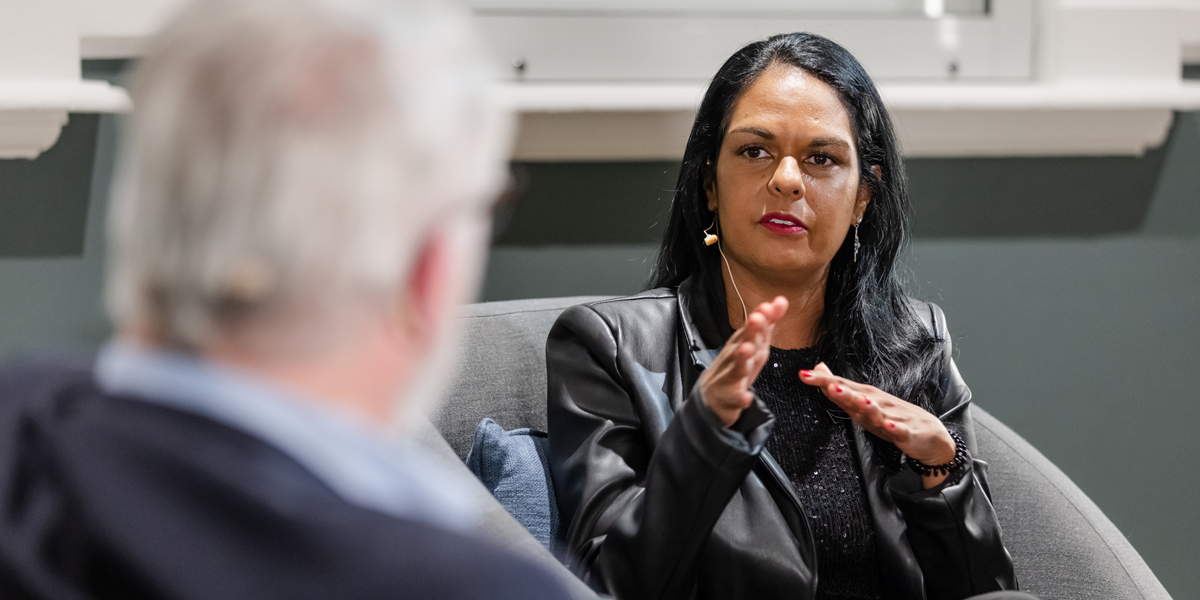
A new era of reckoning: Teela Reid on The Voice to Parliament
Opinion + AnalysisPolitics + Human RightsRelationships
BY The Ethics Centre 22 MAY 2023
Later this year Australians will be asked to vote in a referendum on a Voice to Parliament. Can this conversation for Aboriginal and Torres Strait Islander constitutional recognition reconcile the truth of Australia’s past? Or have we embarked on a new era of reckoning with the risk that comes with a referendum?
In April 2022, Proud Wiradjuri and Wailwan woman and lawyer, Teela Reid sat down with Dr Simon Longstaff AO to discuss what reckoning means to her, what we need to make an informed decision on this vote, and what it means for us – collectively and individually.
Dr Simon Longstaff: When I think of reckoning, three things come to mind. Firstly, there’s ‘reckoning’ as in finding your bearings, dead reckoning. There’s another sense in which you reckon up the bill. And then there’s the third sense in which reckoning can be taken as a moment of recognition of one’s responsibilities and making us confront the reality of who and where we are, and what we’ve done. Perhaps we can touch on all three of those…
Teela Reid: My essay, Reckoning, Not Reconciliation, was born out of a frustration with the concept of reconciliation. I had attempted to dismiss it in some ways – whether that was to be provocative or just trying to grapple with my own sense of the world. The past three, almost four decades, has been defined in so-called Australia under this notion of reconciliation. And so, for me, as a Wiradjuri Wailwan woman, the life that I have been fortunate to live, had nothing to do with reconciliation, but it was in fact in spite of it. For me, having grown up in my community with the stories of my ancestors, my paternal and maternal lineages being hounded onto missions, laws passed so we couldn’t speak our native tongue, this notion of reconciliation kind of popped up.
I remember growing up in that community and then walking into school where we were trained that this notion of reconciliation was to make us feel good. There was almost a sense of denial of the truth. I remember, for example, learning about the Anzacs and there were no soldiers that we were told about that were Aboriginal men or women. And then I’d walk home and my grandparents would sit me around the campfire and give me a whole different education.
I remember just feeling really frustrated with the world. I want to unravel that and unpack this notion of reckoning. To me, it’s about everyone on this continent embracing the discomfort of the hard work we need to get done.
Dr Simon Longstaff: How do you look at the obligations you have – in a structure where elders still are the most significant decision makers within a community – and the need to balance that cultural obligation with obligations arising in a structure like the law; where it’s about the quality of reason, the precision of language and the authority of precedent?
Teela Reid: The western law is a discipline, it’s a practice. I vividly recall being at law school wanting to throw my textbooks up against the library when we were learning about Dicey’s rule of law where we’re all equal before the law. I remember thinking “How do I reconcile this with the stories that I know?” Clearly, the law has never treated my people fairly. There’s never been a fair go in this country for First Nations Peoples. So having those stories in my heart and in my spirit, I still took the opportunity that I was given to go to law school and now to practice law. It’s something I don’t take lightly at all, because I think we would be much worse off as a peoples if we were to take those opportunities for granted and not do the hard yards and live out those opportunities to empower our people.
Dr Simon Longstaff: Can these different definitions of ‘reckoning’ exist side by side? Or is that a very significant tension in your life?
Teela Reid: It’s a constant tension, to be very frank. It is a very constant tension to not lose yourself as a First Nations woman in this place that’s now called Australia and you’re constantly walking a fine line. When I think about reckoning, it’s also about power. It’s about who has the authority to make decisions in different contexts while at the community level our governance systems operate in a very specific way. I think that’s what Australia forgets. We have very ancient governance systems here still very much intact. They might not be written in legislation or rule books, but they’re passed down orally through our ways of knowing and being.
We have this higher order in Australia where there’s parliament, there’s states, there’s territories, there’s people making all these different decisions, but at the very heart of that, there is still the omission of the First Nations and there’s still an act of erasure in that. And the symbols are everywhere. It’s in the flag, it’s in the anthem, it’s in these ways that Australians speak their identity that I just don’t relate to.
Dr Simon Longstaff: The concept of ‘payback’ is sometimes misunderstood as if it’s based in the need for revenge. Instead, it’s about those who have done wrong making restoring balance to the community – paying back what has been taken to those who have suffered loss. Is that the kind of reckoning that you have in mind – bringing it to that point where people recognise loss as a give and take?
Teela Reid: It’s about the reconciling of the balance. There does need to be compensation, there does need to be these tough decisions and reparations for what First Nations Peoples have lost there.
The other way in which I see it, there is a level of discomfort that comes down to this truth telling notion that we’re going to need to embrace. Where Australians are at now – each one of you are advocates, you’re campaigners. You have agency in this movement. Reckoning is going to be a really difficult process, unlike reconciliation where we’ve all felt good with our wraps, our cupcakes and our teas. No, this is going to be quite difficult.
For so long, for 250+ years, as a nation we’ve avoided that discomfort that comes with trying to heal these wounds. Because you might not see the physical wounds, but they’re very deep and they’re intergenerational. When we think of reckoning, we’re all going to have to step up to the plate. And often what happens in a truth telling process, it’s that First Nations Peoples get the onus of having to speak our truth, when in fact white Australia needs to speak its truth. What did your ancestors do to my ancestors? Let’s start to have an open dialogue and take responsibility for that pain. Because I don’t think that we can heal until we reckon with the discomfort and the pain that I think as a nation is going to take many years to get through.
Dr Simon Longstaff: Whatever the result, the proposed referendum on a Voice to Parliament is going to be an extraordinary moment. What are your hopes at this point?
Teela Reid: I hope that people are willing to step up and be engaged and make informed choices for themselves in a conversation that should absolutely be based on the facts and not one in which we should be enlivening racism or anything like that. I do believe it’ll pass. I think there is so much goodwill in the Australian community.
If you look at history, the most successful referendum in 1967, shows that Australians actually feel very deeply on this issue. I’ve travelled to lots of different parts of the country, and engaged with fence seaters or people who want to protest to these kinds of conversations. By the end of it, you sit down, you listen, you work through these conversations and people’s hearts really get it.
Dr Simon Longstaff: Is this a beginning of a new set of possibilities in this country?
Teela Reid: I do believe it is. We all know the Uluru Statement has called for a First Nation’s Voice. One of the things I am grappling with both in the legal sense and the moral sense, it’s the enormous compromise our people have to make decade after decade after decade for this nation to just have a breakthrough. It happened with land rights. The Barunga Statement was gifted to Hawke. Hawke promised a treaty, he gave the nation reconciliation. It’s probably why we’re three, four decades behind right now. I don’t think that Prime Ministers like Hawke should be revered for what they’ve done. Even around when Whitlam came in for his short time in power, there were decades of activism and movements that were demanding big things, big changes. And it was only because of that activism that within those three, four years there was able to be this watershed moment of legislation and changes.
One of the things I am grappling with both in the legal sense and the moral sense, it’s the enormous compromise our people have to make decade after decade after decade for this nation to just have a breakthrough.
And so here I am thinking now, there’s another compromise being made. Perhaps this is more my moment of having to grapple with the way in which compromises are made in the political space.
I hope that everyday Australians are able to take this opportunity this year to actually reflect and educate themselves on the bigger picture and part of the story to this. Because we’re only really seeing it through that one little kind of myopic lens now that there’s going to be one ballot box and you’re going to be voting yes or no. But there is so much more to this.
Simon Longstaff: Are you optimistic that people understand this? Can we resolve the question of legitimacy?
Teela Reid: I do believe it’ll pass, yes. I think there’s so much good faith and goodwill in the people. The strategy behind this movement is correct. Going to the people and not the politicians is what changed this nation. At every single turning point the only reason it’s on the national agenda is because of everyday Australians. It won’t be easy. I think that people shouldn’t get complacent about where we are now. Between now and the ballot box, every single one of you is going to have start your own campaign. Take this extremely seriously. For someone like me, it doesn’t stop.
For everything you need to know about the Voice to Parliament visit here.
This is an abridged version of In Conversation with Teela Reid. Watch the full discussion below.
Ethics in your inbox.
Get the latest inspiration, intelligence, events & more.
By signing up you agree to our privacy policy
You might be interested in…
Opinion + Analysis
Relationships
The niceness trap: Why you mustn’t be too nice
Explainer
Relationships
Ethics Explainer: Agape
Opinion + Analysis
Health + Wellbeing, Relationships
Mutuality of care in a pandemic
Explainer
Society + Culture, Politics + Human Rights
Ethics Explainer: Moral Courage
BY The Ethics Centre
The Ethics Centre is a not-for-profit organisation developing innovative programs, services and experiences, designed to bring ethics to the centre of professional and personal life.
Can philosophy help us when it comes to defining tax fairness?

Can philosophy help us when it comes to defining tax fairness?
Opinion + AnalysisBusiness + LeadershipPolitics + Human Rights
BY Joshua Pearl 31 MAR 2023
Nothing is certain, except death and taxes. We can’t make the former fair but we can at least try when it comes to taxation.
Tax is fundamental to government. It is essential to fund the services we require to live in a modern society, including military, police, judiciary, roads, healthcare and education. It has also become more important in recent decades. At the time of Federation, the Australian tax system collected around 5% of GDP. Today this number stands at around 29%.
But is it fair? Are we paying too little or too much tax? Should those with greater means pay more? These are questions that must be asked of any tax system, and two works by philosophers offer very different answers.
The first is Robert Nozick’s Anarchy State and Utopia. It argues that individuals (and, by extension, the corporations they own) ought to own 100% of their income. Individual property rights are paramount, and any taxation beyond what is required to protect borders and protect these property rights is unjust. In short: only public expenditure on the police and military can be justified.
One of Nozick’s more colourful claims is that taxation is on par with forced labour. Tax forces workers to work in part for themselves, and in part for government.
But while Anarchy State and Utopia is a cult favourite of many modern-styled libertarians arguing for lower taxes, most people consider its position on tax unfair. Many find the consequences of the gross inequalities Nozick permits objectionable, while others argue a child’s right to public education, or a citizen’s right to universal healthcare, outweighs the right individuals or corporations have to their pre-tax wealth and income.
An additional issue for Nozick is how to determine who funds the military and police. Should it be a fee for service? And if so, does this mean only the very wealthy who pay tax should enforce property rights, given they have the most to benefit and lose without military and police? Or should everyone pay an equal amount of tax, regardless of their income or wealth or their ability to pay? (The fallout of this was seen in the 1990’s in the UK when a Thatcher Government head tax proposal was met with violence and riots in the street).
The other side of the tax coin
The second perspective comes from Thomas Nagel and Liam Murphy in their book The Myth of Ownership. They tackle the definition of tax fairness in a nearly opposite way to Nozick. They argue that it does not make sense that citizens have full (or any) rights to their pre-tax income and wealth because income and wealth cannot exist without government. Individual and corporate incomes, and the level of incomes, occur because of the existence of government, not despite it.
They have a point. A successful Australian economy requires the enforcement of law, market regulation, monetary policy (not least for the currency we use), and regulation that prohibits collusion, intimidation and other forms of business malpractice. A banker earns money because the government has mandated a currency – and she keeps her money because property rights exist. A lawyer’s income occurs because of the legal system, not despite it. We might also argue that a successful Australian economy requires investments in public education and public healthcare.
Yet, while individual and corporate income may be contingent on the existence of government, and markets might not be considered perfectly fair nor free, it doesn’t follow that market determined outcomes are completely arbitrary. We often say that someone deserves to earn more if they work harder. So if someone decides to go to university or undertake a trade, rather than surf all day, we might think they deserve a higher salary.
This very simple point (not to mention the very real practical issues with discarding market-based outcomes) mean Nagel and Murphy, like Nozick, fail to provide a complete blueprint for us to determine tax fairness. Nozick fails because he assumes market distributions are 100% fair; Nagel and Murphy fail because they assume market distributions (and any and all inputs that determine these distributions such as hard work and effort) are irrelevant.
And yet both philosophies help us focus on important tax fairness elements. Nagel and Murphy show it is important to focus on people’s post-tax positions and effectively highlight that pre-tax market determined income and wealth are not necessarily “fair”, largely because these incomes and wealth cannot exist without tax and government. Nozick effectively highlights that income and corporate tax can only be justified if associated government expenditure can also be justified.
Even if you find that neither of these perspectives to be the right one, they help establish the parameters of a fair tax system. It’s then up to us to inject our values to determine which system is right for the kind of society we wish to live in.
Ethics in your inbox.
Get the latest inspiration, intelligence, events & more.
By signing up you agree to our privacy policy
You might be interested in…
Opinion + Analysis
Relationships, Politics + Human Rights
How to have a difficult conversation about war
Opinion + Analysis
Business + Leadership
Is debt learnt behaviour?
Opinion + Analysis
Politics + Human Rights
Learning risk management from Harambe
Opinion + Analysis
Business + Leadership, Health + Wellbeing
Navigating a workforce through stressful times
BY Joshua Pearl
Joshua Pearl is the head of Energy Transition at Iberdrola Australia. Josh has previously worked in government and political and corporate advisory. Josh studied economics and finance at the University of New South Wales and philosophy and economics at the London School of Economics.
How far should you go for what you believe in?

How far should you go for what you believe in?
Opinion + AnalysisPolitics + Human Rights
BY Cameryn Cass 28 MAR 2023
Do we all have a right to protest? And does it count if it doesn’t result in radical change? Grappling with its many faces and forms, philosopher Dr Tim Dean, and human rights lawyer and chair of Amnesty International UK, Dr Senthorun (Sen) Raj unpack what it means to ethically protest in our modern society.
In the wake of 2023 World Pride and Sydney Gay and Lesbian Mardi Gras, Raj and Dean reflect on a fundamental question present in all protest: What is it you’re protesting?
The first challenge is in agreeing on what the problem is: Is it freedom we’re fighting for? Equal rights? Sustainability? From there, you’ve got to expose the fault to enough people who are motivated to join in on the resistance.
“We can hope for a better future, but is it enough to just hope?” – Sen Raj
Even if a protest is small in numbers, it can be lasting in impact; just consider Sydney’s first Mardi Gras. It was a relatively modest event that’s now grown to nearly 12,500 marchers and 300,000 spectators. But it began with a fraction of those numbers. Late in the evening on 24 June 1978, a group marched toward Hyde Park with a small stereo system and banners decorating the back of a single flat-bed truck, like a scaled-down parade float. The march intentionally coincided with anniversary of the 1969 Stonewall riots, which remains a symbol of resistance and solidarity among the gay and lesbian community. As the night progressed, police confiscated the truck and sound system. Eventually, 53 people were charged – despite having a permit to march – after they fought back in response to the police violence. To this, Ken Davis, who helped lead the march, said, “The police attack made us more determined to run Mardi Gras the next year.”

“Protest” has multiple meanings
A meaningful protest doesn’t have to be major like Mardi Gras. Sometimes, protests by brave individuals alone have extraordinary impacts.
Thích Quảng Đức, a Mahayana Buddhist monk, famously burned himself to death at a busy intersection in Vietnam on 11 June 1963. In the height of the Buddhist crisis in South Vietnam, Quảng Đức performed this self-immolation to protest Buddhist persecution. The harrowing photo of him calmly seated while burning alive touched all corners of the globe and inspired similar acts of sacrifice in the name of religious freedom.
Protests need not be so drastic, though, to have an impact. On 16 December 1965, a group of American students protested the Vietnam War by wearing black armbands with peace signs on them to school. When administrators told the students to remove the bands and they refused, they were sent home. Backed by their families, the Iowa school’s barring of student protest reached the Supreme Court. The famed Tinker v. Des Moines decision held that students don’t “shed their constitutional rights to freedom of speech or expression at the schoolhouse gate.”
The Tinker case is proof that protests, no matter how minor, can give rise to reformation. But we shouldn’t enter all protests with an expectation of radical change. Dean and Raj agree the assumption that transformation is the mark of a successful protest ought to be re-examined, as a clear outcome isn’t the only metric of success. As Raj said, “There is a tendency at times to assume that a protest will have a very clear message – a defined endpoint or outcome.”
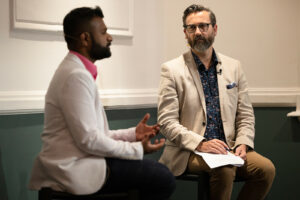
Though progress might prove slow, it’s progress, nonetheless. We should act with the intention of spreading a message and entering a larger conversation that may or may not modify the status quo. Does a protest count for nothing if it doesn’t result in sweeping change? Is it not enough to ignite the spirit of defiance in just one soul? Or to simply express your authentic self even if it has no impact?
“For me, being queer, being trans, being part of a community that is marginalised and stigmatised for who you are or what you do, in itself, is a form of protest.” – Sen Raj
For members of the LGBTQIA+ community, Raj highlights how, “by virtue of existing, these individuals are being policed.” He says, “For me, being queer, being trans, being part of a community that is marginalised and stigmatised for who you are or what you do, in itself, is a form of protest.” So by refusing to conform and loving who they want, not holding themselves to gender or sexual norms, LGBTQIA+ people protest every day. It’s not a large mass gathering, but it’s a kind of protest, nonetheless. Authentic expression begets liberation; we ought not trivialise the importance of any protest, big or small, as it takes real courage to take part in something larger than yourself.
Does violence have a place in protests?
Just as protests can manifest in many forms, they can also be carried out differently.
Because tragedy and injustice are what usually catalyse protests, they’re often charged with strong – and sometimes overwhelmingly negative – emotions. It’s no surprise, then, that some protests turn violent.
But is violence ever permissible in a protest? And if police instigate it, do protesters have a right to protect themselves?

During the racial tensions in 1960s America, many protests ended in violence, especially by police. Images capture the savage behaviour in Birmingham, Alabama, where police unleashed high-powered hoses and dogs on Black protesters. In spite of such violence, they had no space to defend themselves; fighting back meant certain arrest. As Dean and Raj detailed in the discussion, sometimes authorities use this tendency towards self-defence to provoke violence and thus justify further oppression. Race riots persist in America as the fight against systematic racism and police brutality continues. The Black Lives Matter movement (BLM), founded in 2013 and popularised after a policeman wrongfully killed George Floyd in 2020, continues the fight for Black rights.
The fragility of protesting
The right to protest isn’t guaranteed and must be protected. In the absence of protest, the government and other institutions could operate unchallenged.
In Hong Kong, China enacted a new national security law in 2020 that’s a major barrier to protesting. Already, hundreds of protesters have been arrested. On paper, the law protects against terrorism and subversion, but in practice, it criminalises dissent. In the absence of protest, the powerful can ignore and silence the concerns of the masses. If a system is broken, binding together and protesting is an essential step in fixing it. Without protests, a broken system will remain broken.
“That’s what gives rise to protests, is that refusal. That refusal to allow for social or political worlds that oppress you to continue unchecked, and to say ‘Enough’.” – Sen Raj
Anti-protest laws aren’t a uniquely Hong Kong phenomenon. In April 2022, the New South Wales government passed more stringent legislation that punishes both protests and protesters that illegally dissent on public land. By blocking protests that prevent economic activity, critics say it’s an extremely undemocratic measure and threatens protests at large. Plus, it creates a hierarchy among protests, where some are viewed as valid while others aren’t. This raises the larger question of whether it’s the government’s place to determine which protests should be allowed. Does asking permission to protest do an injustice to the demonstration?
A way forward
It’s important to note that there’s no one way to protest. The textbook protest of a group of angry, fed-up citizens waving signs and shouting in the streets doesn’t always hold true. And so we’ve got to remember that protest need not look a certain way or foster radical change to be successful. It need not be a grandiose display of floats and intricate costumes parading down Oxford Street, like today’s Mardi Gras; sometimes it’s enough for one person to speak their mind.
Raj reminds us that protest ought to be messy, joyous and painful but should include care, respect and solidarity. He encourages us to abandon the stereotypical depiction of protest and embrace the possibility of many protests. It’s limiting to try and definitively define what it means. “Protest” is encapsulating of so many movements, minor and mammoth. Instead of trying to box it into one definition, let’s find beauty in its vastness.
Ethics in your inbox.
Get the latest inspiration, intelligence, events & more.
By signing up you agree to our privacy policy
You might be interested in…
Big thinker
Politics + Human Rights
Big Thinker: Peter Singer
Opinion + Analysis
Politics + Human Rights
Australia Day and #changethedate – a tale of two truths
Opinion + Analysis
Politics + Human Rights, Relationships
Ask an ethicist: do teachers have the right to object to returning to school?
Opinion + Analysis
Politics + Human Rights
Is constitutional change what Australia’s First People need?
BY Cameryn Cass
Cameryn Cass is a curious writer and an editor-in-training who studied at Michigan State University. Her primary focus is environmental storytelling, as she deeply loves the natural world and intends to use her voice to defend it. Outside of work, she loves to hike, rock climb and practice yoga.
The Constitution is incomplete. So let’s finish the job
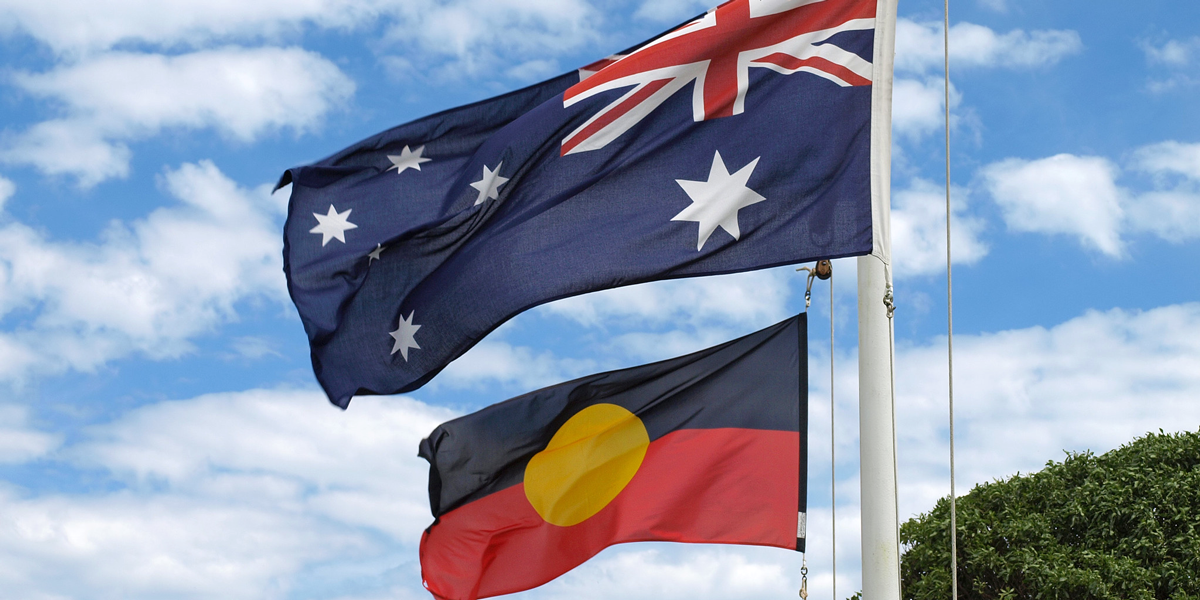
The Constitution is incomplete. So let’s finish the job
Opinion + AnalysisPolitics + Human Rights
BY Simon Longstaff 17 FEB 2023
On July 9, 1900, Royal Assent was given to the Commonwealth of Australia Constitution Act 1900. This act made provision for a series of sovereign colonial states to come together and form “one indissoluble federal commonwealth”. Section 6 of the act defines the states. It lists by name an initial seven colonies – and allows for others to be admitted at a later time.
“Hang on,” you might object, “everyone knows that there were, and are, only six states. What’s this nonsense about there being a seventh?”
Well, the framers of the Constitution wanted to recognise all of the smaller sovereign states that might make up the larger whole. So, the list included New Zealand. Indeed, when in 1902 the Commonwealth Parliament determined who could vote in federal elections, it singled out New Zealand’s Maori people for inclusion – while excluding the vast majority of Australia’s own Indigenous peoples.
This is breathtaking.
If you are wondering what any of this has to do with the proposed referendum about the Voice to Parliament, then consider this.
Those who put together the Constitution never finished the job. They left out those with the greatest claim to sovereignty of all.
Now we have the chance to finish the job – to make our Constitution whole.
We are on the cusp of resolving one of the most profound questions we face as citizens: will we afford constitutional recognition to the descendants of those First Nations peoples whose sovereignty was ignored by the European colonists?
A number of arguments have been put forward as reasons to oppose constitutional recognition of First Nations peoples in the form of a Voice to Parliament. Those arguments include that a Voice:
- Weakens First Nations’ claims to sovereignty.
- Will not lead to a tangible improvement in the lives of Indigenous peoples.
- Is “racist” and undemocratic in that it affords a privilege to one “race” over all others.
- Will increase legal uncertainty – especially when interpreting the Constitution.
In every case, framing the debate in terms of sovereignty helps us to see why these objections, while sincerely made, are not well founded.
It is feared, by some, that constitutional recognition will weaken the claims to sovereignty made by First Nations peoples. However, the Australian Constitution specifically preserves the sovereignty of each of the states that were recognised at Federation. Furthermore, all of their state laws remain intact. The only effect of the Constitution is to render state laws inoperative to the extent that they are inconsistent with valid Commonwealth legislation. Rather than destroying sovereignty, the Constitution recognises and preserves it – even as earlier laws become attenuated.
It might be objected that the First Nations of pre-colonial Australia were not “sovereign states”. However, they meet all of the accepted criteria. They may have been small – but size of territory or population does not matter (think of Monaco, Liechtenstein, Tuvalu and so on – all states). The First Nations had clearly defined borders. They had distinct laws – and processes for their enforcement. They traded – domestically and internationally (for example, centuries of trade between the Makassan people of modern Indonesia and the Anindilyakwa people of the Groote Eylandt archipelago, and others). They fought wars over people and resources and to defend their territory. All of this was anticipated by British law and policy. It was only blind ignorance and prejudice that stopped the colonists recognising the sophisticated array of states they encountered here.
A second objection is that constitutional recognition will do little or nothing to “close the gap”. Surely, Indigenous peoples have a far better idea of what is needed to address the enduring legacies of colonisation than do the rest of us. Certainly, they could not do a worse job than we have so far. So, I believe a Voice to Parliament will make a positive difference in the material circumstances of First Nations peoples. However, while important, this misses the point.
Imagine someone heading out into remote Queensland in 1899 – to tell the people living there that remaining as a crown colony might lead to better outcomes in the future. There would have been a riot in response to the suggestion that Queensland should be left a colony while the rest of the colonial states formed a federation. Even the West Australians decided to join – not because Federation guaranteed a better outcome for the people of each state, but because of the dignity it conferred on citizens of the newly established nation. It’s the same for those forgotten or ignored when the first round of Constitutional crafting was done.
The next “bad” argument claims that the creation of a Voice confers a benefit on one group of people because of their “race” – and that to do so is racist and undemocratic. Once again, the argument fails to take account of First Nations peoples as members of sovereign states. Those states existed – certainly in Natural Law (and probably more formally) for centuries prior to colonisation. The citizens of those states were exclusively Indigenous – not as a matter of racial policy but as a simple fact of history. The same would have been true of other ancient states in other parts of the world which, at one time or another, would have been made up of groups of people related through kinship and so on.
So, if we see our late recognition of the peoples of the First Nations through the lens of sovereignty and citizenship, there is necessarily going to be overlap between that citizenship and membership of a distinct group of related people.
This is not about privileging one “race” over another. It is simply acknowledging the fact that the citizens of the First Nations that we hope to recognise are all bound by a kinship grounded in deep history.
Finally, we come to the argument that an amendment to the Constitution will cause legal uncertainty – with the High Court spending wasted hours in interpreting the new provisions of an amended Constitution. If this is a valid reason for not amending the Constitution, then it is better that we should not have had a Constitution at all. Every clause in the Constitution of 1900 is open to interpretation by the High Court. Indeed, the High Court has spent a vast amount of time interpreting provisions (especially concerning the valid powers of the commonwealth). So, yes, an amendment might lead to disputes in the Federal and High Court. So what? That happens every day in relation to sections of the Constitution that are more or less taken for granted.
Finally, I am happy to see a decreasing number of people are arguing that the voice will be a “third chamber” of parliament. It will not. The Voice will be able to make representations and to advise – using whatever mechanisms the Commonwealth Parliament prescribes. The Voice will decide nothing on its own. It cannot veto any act of parliament or decision of government.
First Nations peoples have asked for something very modest. They want to be recognised. They simply want to be heard in relation to matters that have a direct bearing on their lives.
Our Constitution is a pretty good document. However, its authors left something out. While recognising the sovereignty of all others (even Fiji was in the mix for a while), they overlooked those with the best claim of all.
Imagine a fence made without a gate, a car without brakes and a cake without icing. They’ll work well enough. But they’re not complete. That’s the deficiency in our Constitution – it also works well enough, but it is not complete.
Let’s recognise what was forgotten. Let’s finish the job.
This article was first published in The Australian.
For everything you need to know about the Voice to Parliament visit here.
Ethics in your inbox.
Get the latest inspiration, intelligence, events & more.
By signing up you agree to our privacy policy
You might be interested in…
Big thinker
Politics + Human Rights
Big Thinker: Judith Jarvis Thomson
Explainer
Politics + Human Rights
Ethics Explainer: Deontology
Opinion + Analysis
Politics + Human Rights
Is every billionaire a policy failure?
Opinion + Analysis
Politics + Human Rights












